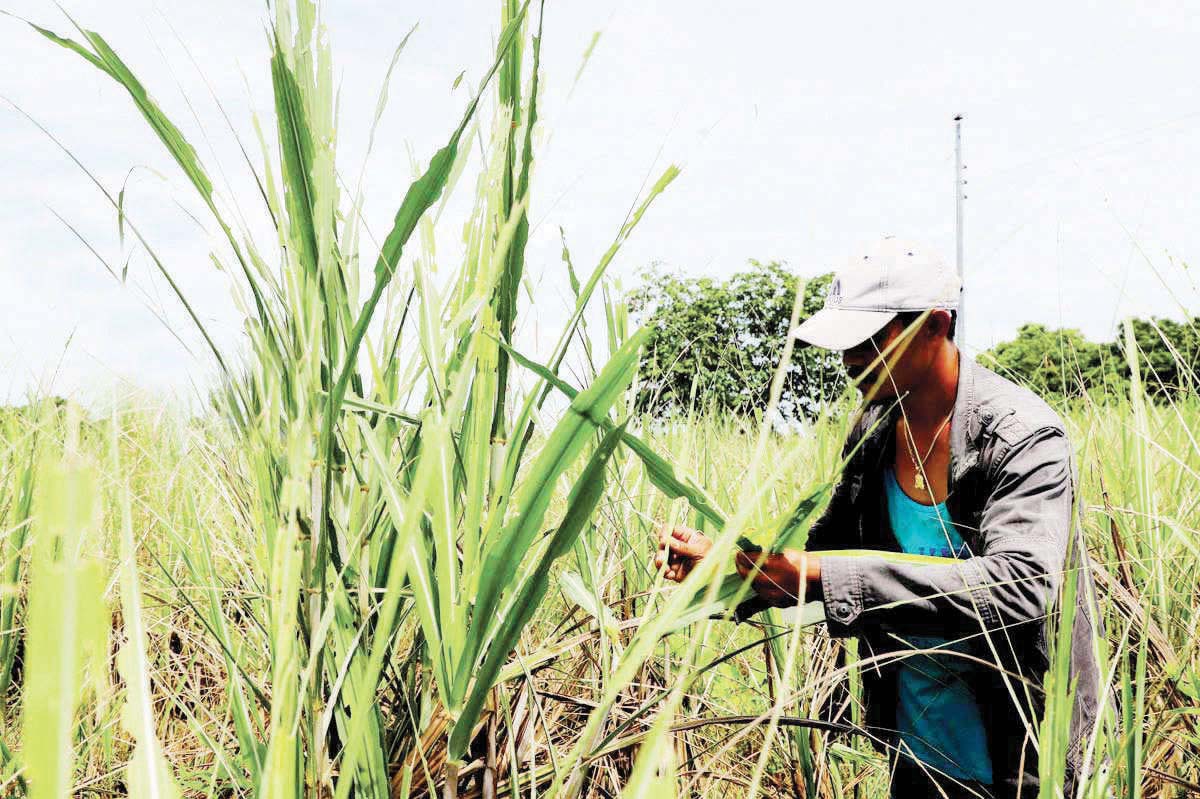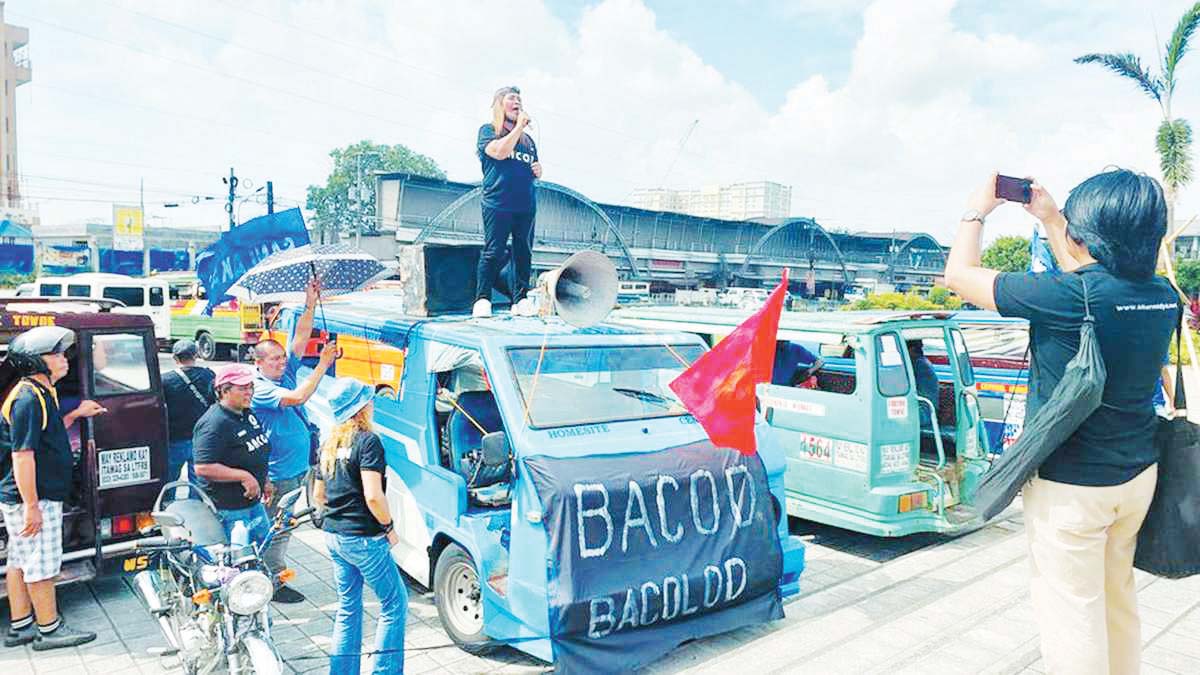(Second of two parts)
Heat index

High heat index due to the El Niño phenomenon in March and April prompted local government units (LGUs) in Negros Occidental, including capital Bacolod City, to implement a series of face-to-face class suspensions.
More than 200 public and private schools canceled in-person classes in 13 LGUs due to the scorching heat.
State weather bureau Pagasa reported that the maximum heat index in Negros Occidental was 42 degrees Celsius.
Some schools in Bago, Silay, E.B. Magalona, Talisay, Binalbagan, and Himamaylan have shifted to modular or online distance learning.
The Department of Education (DepEd) Negros Occidental Schools Division also confirmed reports of some students experiencing nosebleeds and fainting due to the heat.
DepEd-Negros Occidental said students are no longer required to wear school uniforms while attending classes as temperatures continue to soar due to El Niño.
Several schools have shifted to alternative delivery modes to ensure that the students’ learning is not disrupted by extreme weather conditions.
Cloud seeding

The cloud seeding program was initiated by the Negros Occidental provincial government to induce rain and alleviate the effects of drought brought by the El Niño phenomenon on agriculture.
However, the Department of Agriculture’s Bureau of Soils and Water Management (BSWM) recommended in March not to conduct cloud seeding as there were no “seedable” clouds.
The BSWM did not suggest cloud seeding, particularly for drought-hit areas, as current cloud formation “will not result in light to moderate rain.”
The bureau said there are possibilities it will affect 20,000 mango trees in Negros Occidental’s San Carlos City and another 5,000 trees in neighboring Guimaras Island.
Agricultural damage caused by El Niño in the province reached P340 million, the Office of the Provincial Agriculturist said.
The damage to rice crops was pegged at P306,736,598.61, while losses to corn were estimated at P17,102,799.31, and high-value crops at P13,330,121.
The local government units that recorded crop damage due to drought include the cities of Kabankalan, Escalante, Himamaylan, Bago, and San Carlos, as well as the municipalities of Cauayan, San Enrique, Candoni, Valladolid, Ilog, Calatrava, and Hinoba-an.
Since March, the provincial government has been trying to convince the BSWM to allow cloud seeding operations in the province.
The bureau finally allowed cloud seeding operations last May.
Cloud seeding operations were suspended following Kanlaon Volcano’s phreatic eruption on June 3, as it would trigger lahar flows in the cities of La Carlota and Bago, as well as the municipalities of Moises Padilla and Pontevedra.
The operation involves releasing substances into clouds to enhance precipitation and increase rainfall.
Whooping cough

Thirty-eight confirmed cases of pertussis, also known as whooping cough, were recorded in Negros Occidental and Bacolod City in March and April.
Negros Occidental has one fatality due to pertussis, local health officials reported, which involved a one-month-old boy who died at Corazon Locsin Montelibano Regional Hospital in Bacolod City.
The municipalities of Murcia, Cauayan, Hinoba-an, and E.B. Magalona, as well as the cities of Victorias, Silay and Cadiz, have reported confirmed pertussis cases.
The provincial government has allocated a budget for the purchase of an additional 10,000 doses of pentavalent vaccines to prevent the spread of pertussis and other illnesses among children.
Pentavalent vaccines protect against diphtheria, tetanus, hepatitis B, hemophilus influenza type B, and pertussis.
The Bacolod City Health Office reported 47 probable pertussis cases.
Barangay Tangub recorded the highest number of confirmed cases with three, while Barangay Taculing has two cases.
Pertussis is a highly contagious respiratory disease, and children are the most vulnerable to infection.
The characteristic “whooping” sound occurs when the patient inhales after a severe coughing fit.
The illness usually begins with cold-like symptoms, such as runny nose and mild cough, which could intensify over a period of two weeks.
Armyworm infestation

Armyworms infested corn and sugarcane fields in 15 local government units in Negros Occidental, causing damage estimated at P37.32 million.
Around 2,504.6 hectares of corn farms owned by 3,961 farmers in 77 villages have been infested.
San Carlos City had the highest amount of damage at P9.465 million, affecting 663.38 hectares tilled by 852 farmers in nine villages.
Damage was also recorded in the towns of Calatrava, La Castellana, Moises Padilla, Isabela, Binalbagan, Murcia, Don Salvador Benedicto, Hinoba-an, Ilog, and Cauayan, as well as the cities of Himamaylan, Sipalay, Talisay and Kabankalan.
Reports of armyworm infestation were first recorded in a sugarcane field at Sitio Iling-iling in Himamaylan City’s Barangay Cabadiangan, and corn fields in Binalbagan town’s Barangay Santol.
The outbreak comes at a critical time for local farmers, who are still recovering from the effects of the drought brought by the El Niño phenomenon.
Armyworms are destructive pests named after their army-like movement in agricultural fields and usually consume turf grass but will eat any vegetation in their path.
Armyworms usually come out of hibernation after a long, dry season or drought.
In July, experts from the National Crop Protection Center of the University of the Philippines-Los Baños, Laguna visited the province to conduct a field check and assessment of the affected areas, including sugarcane plantations.
In Negros Oriental, the fall armyworm infestation has spread to 22 towns and cities.
The infestation spread fast and invaded 7,586 hectares planted with corn across the province.
The towns and cities whose corn plantations were destroyed by the fall armyworms are the municipalities of Vallehermoso, Tayasan, Dauin, La Libertad, Manjuyod, Bindoy, Sta. Catalina, Jimalalud, Ayungon, Mabinay, Basay, Bacong, Amlan, Pamplona, Siaton, as well as the cities of Canlaon, Bais, Bayawan, Zamboanguita, Guihulngan, Tanjay, and capital Dumaguete.
Efforts to contain the spread of the fall armyworms include the spraying of insecticides, the introduction of trichogramma biocontrol agents, and handpicking.
PUV consolidation

Several transport groups in Bacolod City participated in a series of transport strikes this year to protest against the government’s Public Utility Vehicle Modernization Program (PUVMP).
In May, Kabacod Negros Transport Coalition Knetco, under the No to PUV Phaseout Coalition, stated their objection to the PUVMP’s mandatory scheme, citing that the cost of consolidation is high and inhibitive, which will instantly render their traditional jeepney units useless as they had invested in them for years.
The group said the modernization program will deprive millions of families of their basic sources of income and disenfranchise thousands of jeepney operators and drivers.
In August, the Bacolod Modernized Jeepney Transport Association (BMJTA) during their transport caravan showed support for the Public Transport Modernization Program (PTMP), following proposals for suspension.
The BMJTA said thousands of Bacolodnons will go hungry as a result of the suspension of updated jeepney operations, as many families depend on the modern transport industry for their daily needs.
They are calling for the government to find solutions to the woes being faced by PTMP instead of suspending it.
The BMJTA said the government also has to consider drivers and operators under their association who adhered to PTMP, stating that they fulfilled the requirements mandated by the government.
In September, the Land Transportation Franchising and Regulatory Board (LTFRB) reopened the application process for the consolidation.
The LTFRB will consider giving unconsolidated operators about 60 more days to comply, encouraging them to grab the opportunity instead of continuing with their protest.
The Bacolod Alliance for Commuters, Operators and Drivers Inc. and other local traditional transport groups expressed concerns about the threat that they would be arrested for failure to consolidate for PUVMP after November 30.
Under the modernization program, traditional PUV operators are required to form cooperatives or corporations to gain access to business financing and acquire modernized jeepney units.
Traditional jeepneys will be replaced with modernized vehicles compliant with Euro 4 engines as part of efforts to reduce air pollution./WDJ
